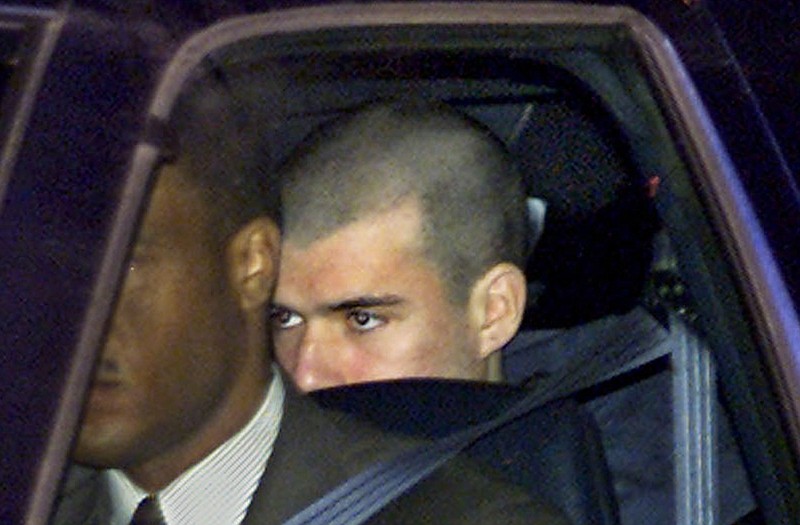John Walker Lindh, the Californian who took up arms for the Taliban and was captured by invading U.S. forces in Afghanistan in 2001, got out of prison Thursday after more than 17 years, released under tight restrictions that reflected government fears he still harbors radical views.
Lindh, 38, left a federal penitentiary in Terre Haute, Indiana, after getting time off for good behavior from the 20-year sentence he received upon pleading guilty to providing support to the Taliban.
It was not immediately clear where the man known as the “American Taliban” will live or what he will do.
In a Fox News interview, Secretary of State Mike Pompeo decried his early release as “unexplainable and unconscionable” and called for a review of prison system policies.
Lindh’s release was also opposed by the family of CIA officer Mike Spann, who was killed during an uprising of Taliban prisoners shortly after interrogating Lindh in Afghanistan.
Under restrictions imposed by a federal judge in Alexandria, Virginia, Lindh’s internet devices must have monitoring software; his online communications must be conducted in English; he must undergo mental health counseling; he is forbidden to possess or view extremist material; and he cannot hold a passport or leave the U.S.
FBI counterterrorism officials work with federal prison authorities to determine what risk a soon-to-be-released inmate might pose.
Probation officers never explained why they sought the restrictions against Lindh. However, in 2017, Foreign Policy magazine cited a National Counterterrorism Center report that said Lindh “continued to advocate for global jihad and to write and translate violent extremist texts.”
On Wednesday, NBC reported Lindh, in a letter to a producer from Los Angeles-based affiliate KNBC, wrote in 2015 that the Islamic State group was “doing a spectacular job.”
Lindh converted to Islam as a teenager after seeing the movie “Malcolm X” and eventually made his way to Pakistan and Afghanistan and joined the Taliban. He met Osama bin Laden and was with the Taliban on Sept. 11, 2001, when al-Qaida terrorists attacked the World Trade Center and the Pentagon.
Lindh was captured in a battle with U.S.-allied Northern Alliance fighters in late 2001. He was present when a group of Taliban prisoners launched the attack that killed Spann.
Spann’s daughter Alison Spann, now a journalist in Mississippi, posted a letter on Twitter that she said she had sent to President Donald Trump. In it, she called Lindh’s early release “a slap in the face” to everyone killed on 9/11 and in the war on terror since then, along with “the millions of Muslims worldwide who don’t support radical extremists.”
Lindh was initially charged with conspiring to kill Spann. He denied any role in the CIA man’s death but admitted to carrying an assault rifle and two grenades.

